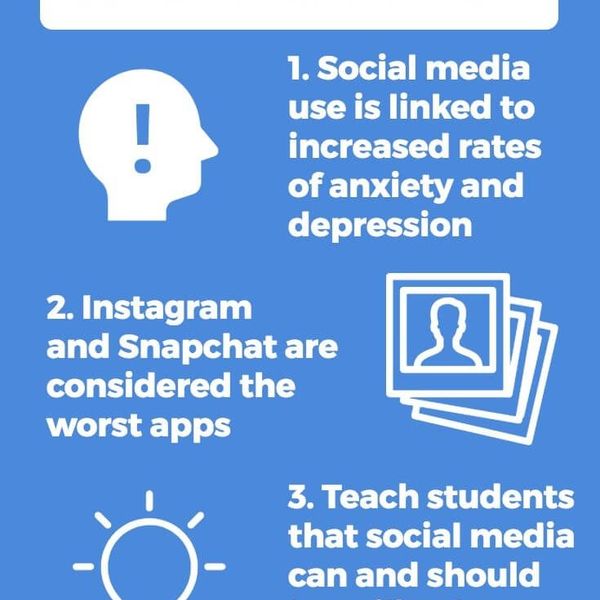Effect on Mental Health Condition
One of the most frequent effects that include the use of social networks is the addiction that they assume. Internet addiction is already classified as an addiction disorder, whereas social media addiction has not been classified yet, though some researchers in the United Kingdom have concluded it is a mental health condition that may need professional treatment (L’Ecuyer, 2018). Many times, social media addicts show through constant publications a false life full of constant happiness or luxuries. They want to show the world what they want to be or have, not what they really are. Harvard University and the University of Chicago have conducted studies on the excessive use of social pages. The results show that exposure to them activates the same areas of the brain as drug use. This may be stronger than addiction to tobacco or alcohol.
This condition derives a series of behaviors and symptoms that directly affect the people who suffer from it. Decreased hours of sleep, decreased concentration and distraction in the place of employment are usually some of these behaviors. By not paying attention to the really important tasks and not following order of priority for this same lack of concentration people end up experiencing great anxiety and stress. Another cause of anxiety for those who abuse the use of social pages is the fear of missing updated information on their networks and their own notifications. This forces them to connect continuously so as not to let any new information or publication of their contacts pass through. Anxiety becomes the motivation to follow a behavior that in turn generates even more anxiety. Another great disadvantage of social networks is the loss of privacy.
Habit of Publishing Personal Information
The information we share in our profiles may be disclosed or shared by anyone on our list of friends even if our privacy options are at the highest level. Some people have the habit of publishing personal information such as the days they go on vacation, the material things they have at home and their location at certain times. The misuse of these pages and the constant personal publications can affect even the professional life of the publisher. Many companies look for references of their possible employees on the social pages to ensure the quality and seriousness of their lives outside of work. Many users of social networks experience low levels of self-esteem and recurrent negative emotions such as envy and jealousy. In these pages we find many options, applications and filters that alter the way we see not only others but also ourselves. These resources and the constant comparison that some carry out with photos of friends creates the unnecessary need to be perfect. In many cases, this is the cause of great depressions. There have been cases of people suffering from eating disorders motivated by the desire to obtain a great body that is accepted and flattered when published photos are concerned. Research conducted by the University of Strathclyde, the University of Ohio, and the University of Iowa also concluded that women compare negatively with the content of other women, specifically selfies, creating a feeling of inadequacy and lack of attractiveness.
Social Media’s Effects on Adults and Teens
The University of Salford did a study last year on social media’s effects on self-esteem and anxiety and reported that 43% of their 268 participants said that their use of social networks like Facebook and Twitter makes their lives worse (Fowler). Probably the biggest negative impact of social networks is cyberbullying. It is closely linked to depression, especially in adolescents. Cyberbullying has spread rapidly and, according to a 2010 CBS news report, more than 42% of young people have been victims of cyberbullying (Ta, 2014). This is the digital variant of bullying that consists of constantly humiliating a person with insulting or cruel messages. Cyber stalkers attack their victims almost always anonymously. Although other times they pass themselves off as people whom the victims trust so they can terrorize them. The impact of cyberbullying leaves its victims with deep mental scars and even some have taken their own lives. Another danger that occurs in social networks is grooming.
Adults who pose as young people and establish friendship with minors to convince them to send them erotic images. Offenders can attack hundreds of children at once to satisfy their sexual fantasies and once initial contact is established, this often becomes threatening and intimidating (Keating, 2015). The use of social networks also has positive effects. They give you the opportunity to keep in touch with people and eliminate barriers of distance between family and friends. Through them, you can meet new people and stay informed. They can be used as a means of entertainment and diversion. Despite all these positive aspects, social pages can be used in a harmful way and have terrible consequences. We must take into account all the risks and dangers posed by the negative effects that I have already explained. Erroneous use of these networks can result in a real misfortune both for those who use them and their family and friends.

